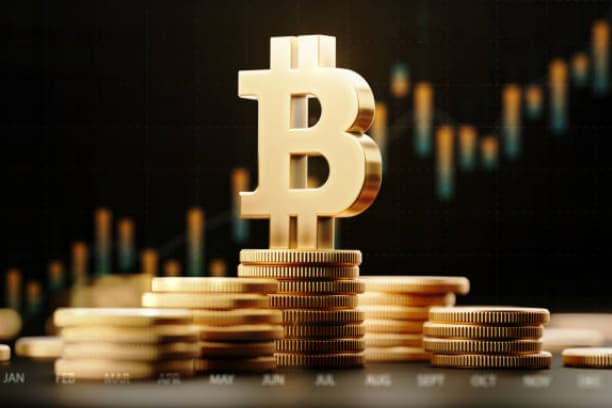Is Bitcoin trading in real time? Trading Rules Explained
Bitcoin trading is real-time and global in nature, but the mechanism behind its trading is not entirely "real-time". In this article, we will discuss whether Bitcoin trading really takes place in real time and the operating rules of Bitcoin trading, including the blockchain validation process, exchange trading process, trading hours, etc., so as to help investors better understand the operation of the Bitcoin market and make informed investment decisions.

Bitcoin Trading in Real Time: Not Exactly Real Time
Bitcoin trading is often thought to take place in real time, but in reality, this is not entirely true. While it is true that Bitcoin transactions are based on blockchain technology and that traders can initiate transactions at any time around the world, the completion of a transaction requires multiple confirmations from the blockchain, which is not an immediate process. Typically, it takes 10 to 15 minutes from the time a Bitcoin transaction is initiated to the time it is finally confirmed, during which time the transaction remains in a "pending" state.
The speed of exchange processing also affects the immediacy of trading. For example, on some exchanges you may experience delays due to network congestion or high transaction volumes. In such cases, the actual completion of a transaction may take longer than expected, which is why even the cryptocurrency market can be affected by network conditions and market volatility.
Time factor for trade confirmation
Bitcoin transactions require multiple confirmations on the blockchain, a process that often affects the real-time nature of the transaction. When a transaction is initiated, it is first "packaged" into a block, which is verified by the Bitcoin network's miners and added to the blockchain. Typically, a Bitcoin transaction needs to go through six blocks before it can be considered fully verified, which ensures that the transaction is not tampered with.
Since blocks are generated at a rate of approximately one every 10 minutes, the confirmation process of a transaction will be delayed for a certain period of time. According to the design of Bitcoin, the more blocks are confirmed, the more secure the transaction is. This is a way to ensure that transactions are not double-paid or tampered with.
Exchange Impact: Real-Time Market Operations
In addition to the confirmation time of the blockchain itself, the way exchanges operate also affects the immediacy of Bitcoin trading. Although Bitcoin trading takes place on the blockchain, most investors choose to execute their buy and sell orders through exchanges. On exchanges, when a transaction is created and matched with a buyer or seller, the transaction is shown as completed, but this does not mean that the transaction has been confirmed on the blockchain.
Exchanges provide an option for "Instant Transaction", which usually means that the transaction has been aggregated within the platform and is pending confirmation. However, an intra-exchange transaction is not the same as a final confirmation on the blockchain. On some exchanges, you may experience delays due to lack of market liquidity or high volume.

So while you may feel the transaction is instantaneous within the exchange, on the real blockchain, there is still a wait for the blockchain to confirm it.
Example of Eurex
Take the OKX exchange, for example, which offers a fast trade matching service and a real-time buying and selling experience, but after the actual transaction is completed, the transaction is still subject to blockchain confirmation, and the user's funds don't reach their wallet until the blockchain confirms them.
Flexibility in trading hours: 24/7 operation
Bitcoin, as a decentralized digital currency, can be traded at any time of the day or night around the world. Unlike traditional stock markets, which usually have fixed opening and closing times, Bitcoin trading is open 24 hours a day and is available to everyone at all times. This is one of the major advantages of Bitcoin and other cryptocurrencies, which allows investors around the globe to trade as they see fit.
This also means that price volatility in the Bitcoin market can be more intense, especially during periods of low trading volume. As market liquidity varies from time to time, price volatility may be more intense at certain times, so investors should be aware of the active hours of the market, even though trading takes place around the clock.
Impact of market liquidity
On smaller exchanges or during periods of low trading volume, Bitcoin liquidity may be reduced, which may affect the immediate execution of trades. With lower liquidity, transaction prices may be more volatile, and may even experience slippage.
Transaction Fees and the Impact of Network Congestion
Confirmation time and transaction costs for Bitcoin transactions are often related to network congestion. When the volume of transactions on the Bitcoin network reaches its peak, the confirmation of transactions is delayed and users may choose to pay higher fees in order to expedite the confirmation of transactions. This is because miners prioritize transactions with higher fees.
During high volume periods, you may find that your transactions take longer to confirm, even though they have been submitted. This is due to a backlog of transactions caused by network congestion, with miners preferring to process transactions with higher fees, while other transactions may take longer to be processed.
Fee Setting and Market Timing
Therefore, setting a reasonable commission rate is key to improving the immediacy of trading. Many exchanges allow users to choose their own commission rates, which not only affects the prioritization of trades, but may also affect the overall smoothness of trading.
Summary: How to Understand the Instantaneous Nature of Bitcoin Trading
In summary, Bitcoin transactions are not completely real-time, as they are subject to confirmation by the blockchain. Blockchain confirmation times, exchange processing speeds, and network congestion can all affect the real-time nature of transactions. Nonetheless, the 24/7 operation of the Bitcoin market offers great convenience to investors around the world, and the real-time aggregation system within the exchanges allows users to trade quickly. Therefore, understanding the trade confirmation process and the delays that may be encountered is an important part of making an informed decision when participating in Bitcoin trading.
If you are new to Bitcoin trading, understanding these basic principles will help you better plan your trading strategy and increase your trading efficiency.














